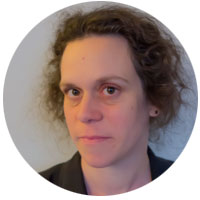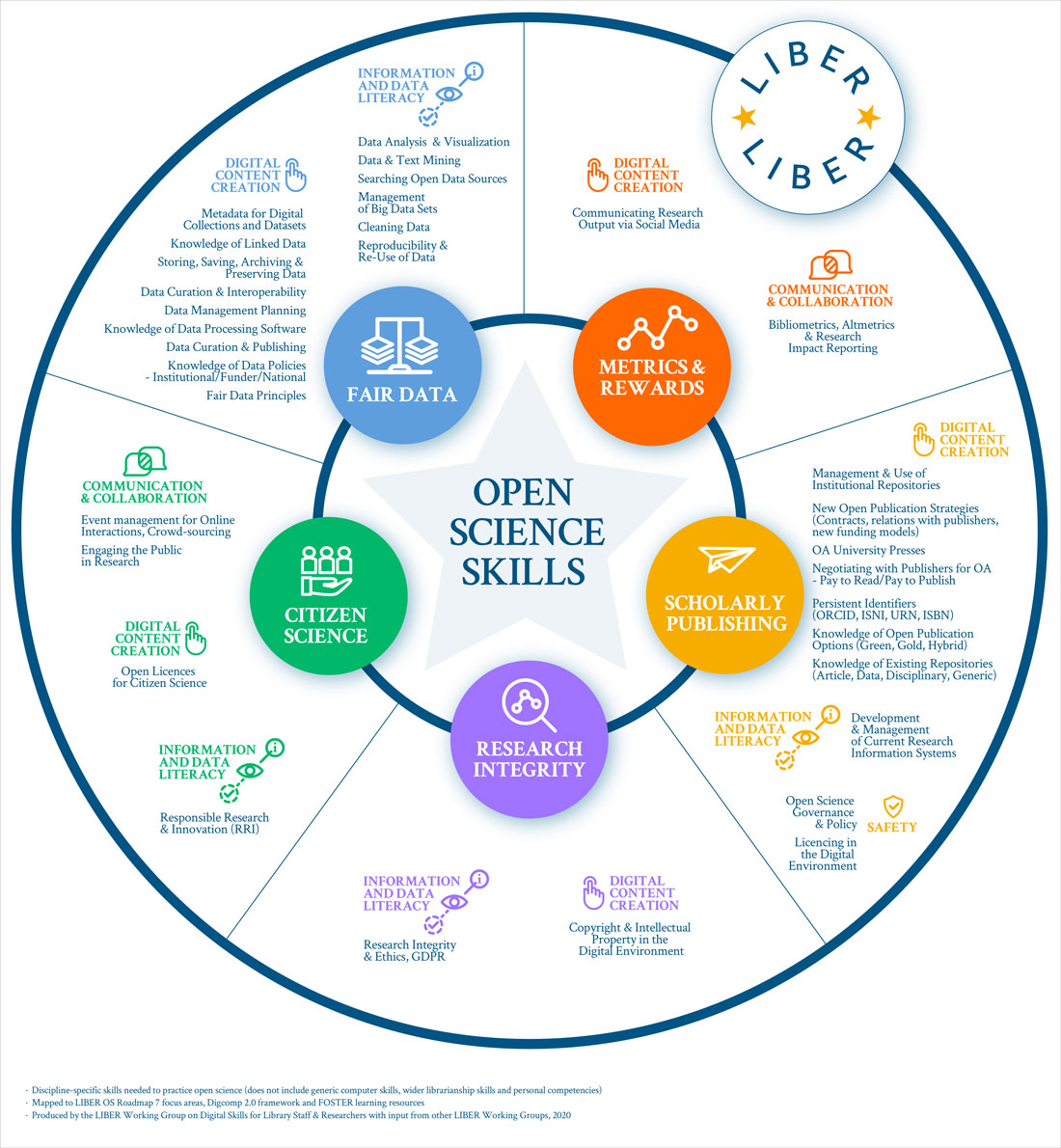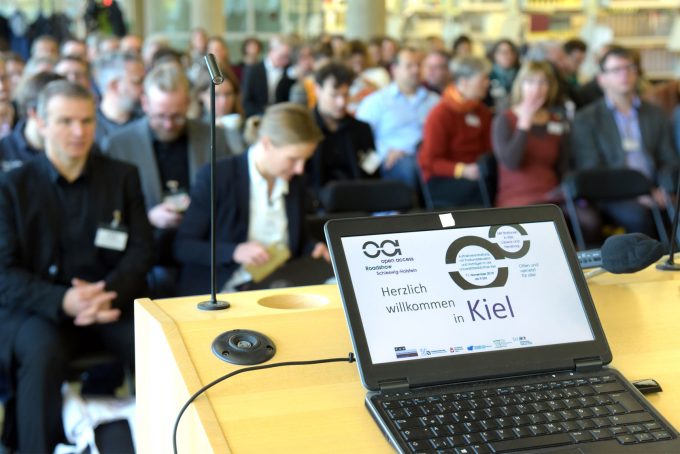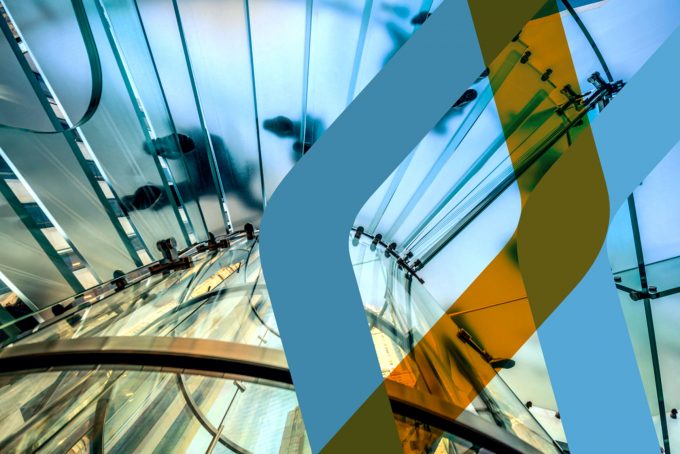
Open Science Training: How to Implement Methods and Practices in European Research Libraries
How can the principles of Open Science be implemented in European research libraries to enable world-class research? A LIBER working group has addressed this question and developed appropriate training methods and practices. Cécile Swiatek was one of the persons who led the working group and presents the results in an interview. She also tells us why libraries are perfectly suited to play a key role in the change towards an open culture and why it is so important to build networks and share knowledge in this process.
we were talking to Cécile Swiatek

The Ligue des Bibliothèques Européennes de Recherche (LIBER) has created the working group “Digital Skills for Library Staff & Researchers” from 2018 – 2020. The aim of the working group was to promote an open scientific culture and to position libraries in a key role in the training of Open Science skills. The identification of suitable strategies, methods and modes of action for training library staff and researchers in the field of Open Science was at the heart of the working group’s activities. Cécile Swiatek co-chaired the LIBER working group with Susanne Dalsgaard-Krag (SDU, Denmark) in 2019 and Ciara McCaffrey (Limerick, Ireland) in 2020 and tells us about successes and challenges in an interview.
You are part of „LIBER’s Digital Skills for Library Staff and Research Working Group “. Why has it been founded in 2018?
The LIBER Digital Skills for Library Staff and Researchers Working Group was initiated in 2018, two years after LIBER released its “Open Science Roadmap” and at the very beginning of the current LIBER 2018-2022 strategy “Research libraries powering sustainable knowledge in the digital age”. The working group’s timing was perfect: in 2017 the European Expert Group on Education and Skills under Open Science published the report “Providing researchers with the skills and competencies they need to practice Open Science”. In addition, in 2019 the European Commission released its “Open Science factsheet”, stating “all scientists in Europe should have the necessary skills and support to apply Open Science research routines and practices”.
What are the concerns and goals of the working group? What is the outcome of it?
LIBER’s mission is to enable world-class research. This means helping libraries to regularly re-assess their services and offer new ones, so that they can meet the needs of a rapidly changing digital world. In this context, in order to face the advance of Open Science and the skills sets reinvention it implies, the LIBER Digital Skills for Library Staff and Researchers Working Group aimed at:
- Displaying the importance of training programmes for implementing Open Science in any institution, and show that libraries happen to be the perfect leader for training researchers, librarians and staff in an institution.
- Making Open Science skills understandable and accessible to researchers, librarians and all higher education institutions training coordinators.
- Sharing useful material, best practices, use cases, and fostering discussions about European library training services and research support services.
We published our outcomes openly, held free webinars, and participated in Open Science events. Of course, everything is free and open online, under CC-BY, and all useful material is provided. You can find a list with our material below the interview.
Why are libraries so suitable to spread a more open culture and to position themselves as key partners in skills training for the complex and forward-thinking concept of Open Science?
Skills are part of an overall Open Science implementation strategy that libraries embrace comprehensively. Library teams are good at coordinating Open Science training for researchers and staff, they have been managing academic knowledge issues for centuries.
As the LIBER “Open Science Training Methods and Practices Across European Research Libraries – Survey Analysis” states it and its use cases demonstrate it, librarians are considered experts as:
- Open Science skills trainers,
- Open Access publication support services providers,
- FAIR data managers
- Citizen Science facilitators.
Libraries know how to plan training programmes, and possess demonstrated leadership, management and pedagogical skills. They are skilled with Open Science, they lead and manage Open Research support services and they easily partner with researchers and experts. They often host the institutional Open Knowledge or Common Knowledge managers, data specialists, and OpenAire National Open Access Desks. Open Science and information skills and practices training is thus a clear role of libraries.
In the last two years, the working group has talked to libraries across Europe. What were the most interesting learnings from that?
- Skills are part of an overall Open Science implementation strategy.
- Library teams are good at coordinating Open Science training for researchers and staff.
- Engaging people into a community implies trusting people, and giving ideas a space where to grow.
- Sharing knowledge and skills is amazingly efficient in order to build a lively and innovative community.
One thing we must not forget is that if we really want to take every European library on board with Open Science skills training, it is very important that we build networks and share our training material openly. This works both for users’ training, and train-the-trainer activities.
The working group has identified a couple of Open Science skills. What of these skills does library staff need to work on most in the coming years? How can this be done?
As the Digital skills working group states it:
The array of knowledge, skills and competencies needed to practice Open Science (OS) effectively can be daunting for many librarians and researchers, particularly those who are new to OS concepts and practices”.
This is why we designed a visualisation diagram, in order to provide entry points into Open Sciences skills, and help building a training path.

Visualisation diagram “Identifying Open Science Skills for Library Staff & Researchers”
From this Open Science skills diagram visualisation, structured around five of the “LIBER Open Science Roadmap” focus areas (Scholarly publishing skills, FAIR data training, Metrics & rewards, Research integrity, Citizen Science), we can highlight some skills needed for the coming year(s):
- Scholarly publishing, open peer reviewing and data FAIRness enforcement skills will raise massively, especially with the 2021 opening of “Open Research Europe”, the European Commission Open Research publishing platform.
- Ethics priorities will quickly follow, altogether with Responsible Research & Innovation (RRI) and Citizen Science topics.
- Open Education is a rising issue that will take a growing place in the strategies. Open Science skills will probably be one of the major topics.
- Sustainable development issues will probably come next.
For those who are new to Open Science, the top priority will be to define where to go: the first step is to set a strategy and create Open Access / Open Science support services. Subjects related to researchers’ careers, such as scholarly publishing skills and FAIR data, are popular to start with.
Two of the main obstacles to OS training we noticed are: a lack of will (no budget, no incentive, no rewards for either trainers or trainees), or a lack of specialised trainers in the country and / or a language barrier in order to go beyond the very first Open Access step.
One of the – let’s say – visions of the working group is an institutional Open Science staff lifelong training programme in a research center or a higher education institution. How can this be achieved?
Let me quote the “LIBER Open Science Training Methods and Practices Across European Research Libraries – Survey Analysis” (page 11):
- Identify the institution’s Open Science priorities.
- Identify your target audiences and their specific needs concerning digital skills and Open Science.
- Reflect upon the needs you have identified to develop your strategy.
- Keep in mind the following questions: how can you remove misconceptions and fears about Open Science and about the difficulties that can arise in the digital skill acquisition process? How can you make researchers use library services as an integral part of their research activities?
- Prioritise the skills your audiences have to acquire when you build the training programmes: researchers, librarians, staff.
- Don’t work alone. You will have to establish a regular and constant dialogue with the board and the other central services of your institution (IT, vocational training); you will also have to build bridges between departments and disciplines.
- Use various channels and learning types (face-to-face, self-training as well as group activities, gamification activities).
- Set a budget that includes human resources, train-the-trainer, and event costs.
If a research library wants to get started in training their staff in terms of Open Science, what can be useful first steps? What are the challenges?
Six main challenges when building an Open Science training initiative are listed along with some advice by the survey respondents in the “Open Science Training Methods and Practices Across European Research Libraries . Survey Analysis” (page 12):
- Including training programmes in the structure’s overall Open Science implementation strategy,
- Identifying the Open Science training programme key players,
- Recruiting well,
- Cultural changes take time,
- Managing a large range of trainings,
- Reaching the audience.
Further information of the LIBER-Working-Group:
The “LIBER’s Digital Skills for Library Staff and Researchers Working Group” delivered open material and provided a general landscape. This includes its Open Science skills visualisation diagram, a Zotero reference library on digital skills, 21 selected Open Science training case reviews across Europe in the form of published interviews, an analysis of these cases that highlights challenges and gives key messages from the respondents, and complementary use cases and feedbacks through workshops and webinars. All documents are online, openly and freely accessible.
“LIBER Digital Skills for Library Staff and Researchers poster” for the Open Science Conference 2020.
Publications
- “LIBER Open Science Training Methods and Practices Across European Research Libraries – Survey Analysis”, based on 21 selected cases.
- The 21 selected case studies sheets are published on Zenodo, along with the original survey questionnaire
- The “Open Science Skills visualisation diagram” proposes entry points for developing Open Science training programmes.
- Useful references about Digital skills for Open Science are available on our Zotero library.
Workshops
- LIBER & FOSTER Plus 2018 Workshop at LIBER 2018: ““Let’s Build The Skills!”
- LIBER & SSHOC 2019 workshop at LIBER 2019. LIBER 2019. The first part of the workshop focused on Open Science skills and showcases of Open Science skilling and training initiatives in Europe, and the second part was a session shared with the SSHOC project and the Digital Humanities & Digital Cultural Heritage Working Group. (See report from the “Open Science Essentials: Towards a Skill Set & Showcases Session” and presentations presentations from the second half of the workshop).
- LIBER & FAIRsFAIR and the EUA 2020 workshop at LIBER 2020 “Integrate FAIR Data science competences in higher education curricula: the role of academic and research libraries” and the recording which can be found on youtube.
Webinars
- Webinar Video & Audio: “Skills and Training in Open Science and the EOSC ecosystem”
- Webinar Video: “Use Cases for Responsible Research & Innovation” (RRI)
- Webinar Video: “Open Science Skilling & Training Programmes Across Europe”
Cécile Swiatek (ORCiD) is involved with pedagogy, HE digital innovation, and skill issues.
Actively involved in LIBER since 2011, she co-chaired the “Digital Skills for Library Staff and Researchers Working Group” (2018 – 2020) and joined the LIBER Board in 2020. She strongly contributes to the LIBER Leadership Journées for Library directors . She is deputy director at the Paris II academic library (Bibliothèque de l´université Paris II Pantheón-Assas) in Paris, France, in charge of library services and resource assessment and of both professional and users training services. Cécile Swiatek is Secretary General of the French national association of directors and senior staff in university and research libraries (l’Association des directeurs et personnels de direction des bibliothèques universitaires et de la documentation (french) – ADBU).
View Comments

User Experience for Libraries: The Best Tools and Methods for Beginners
Relying on users to discover how products and services can be improved: it’s what the...



